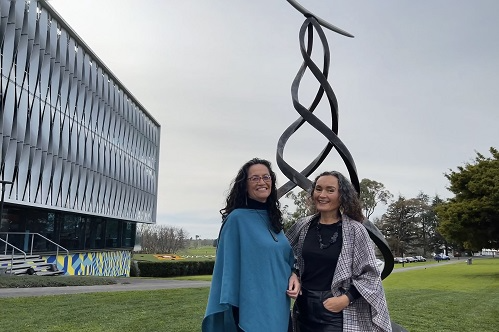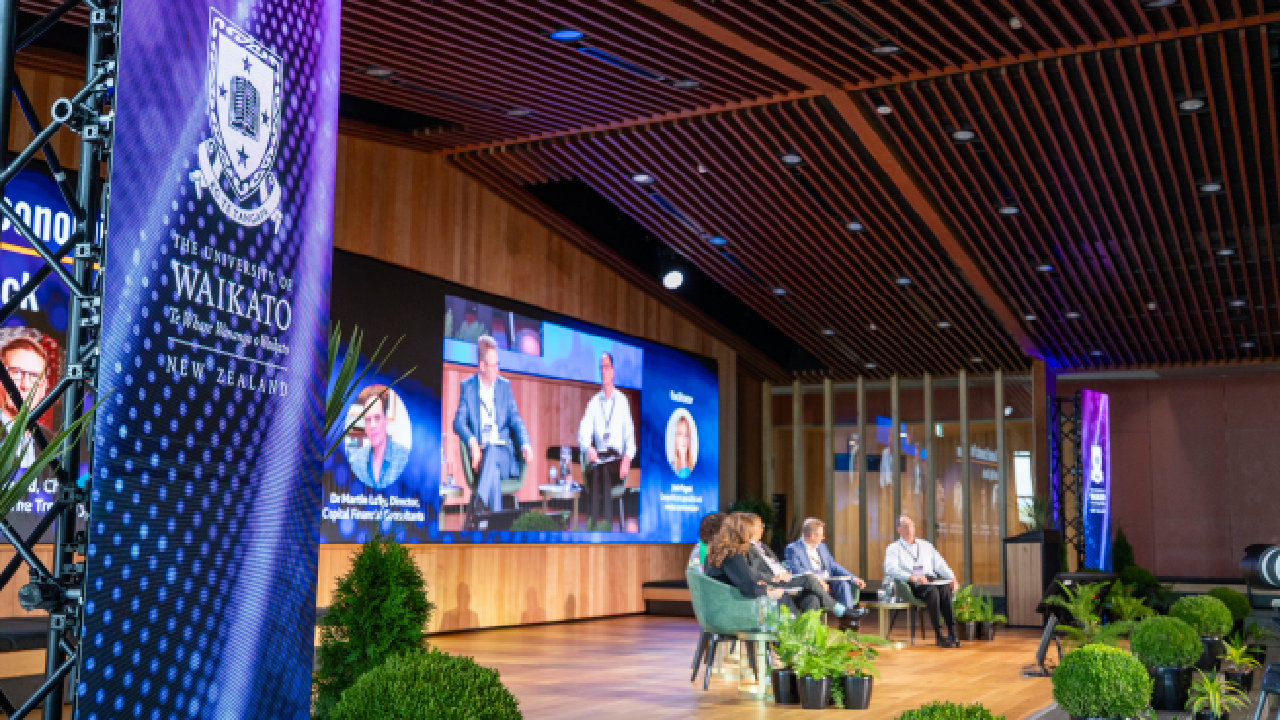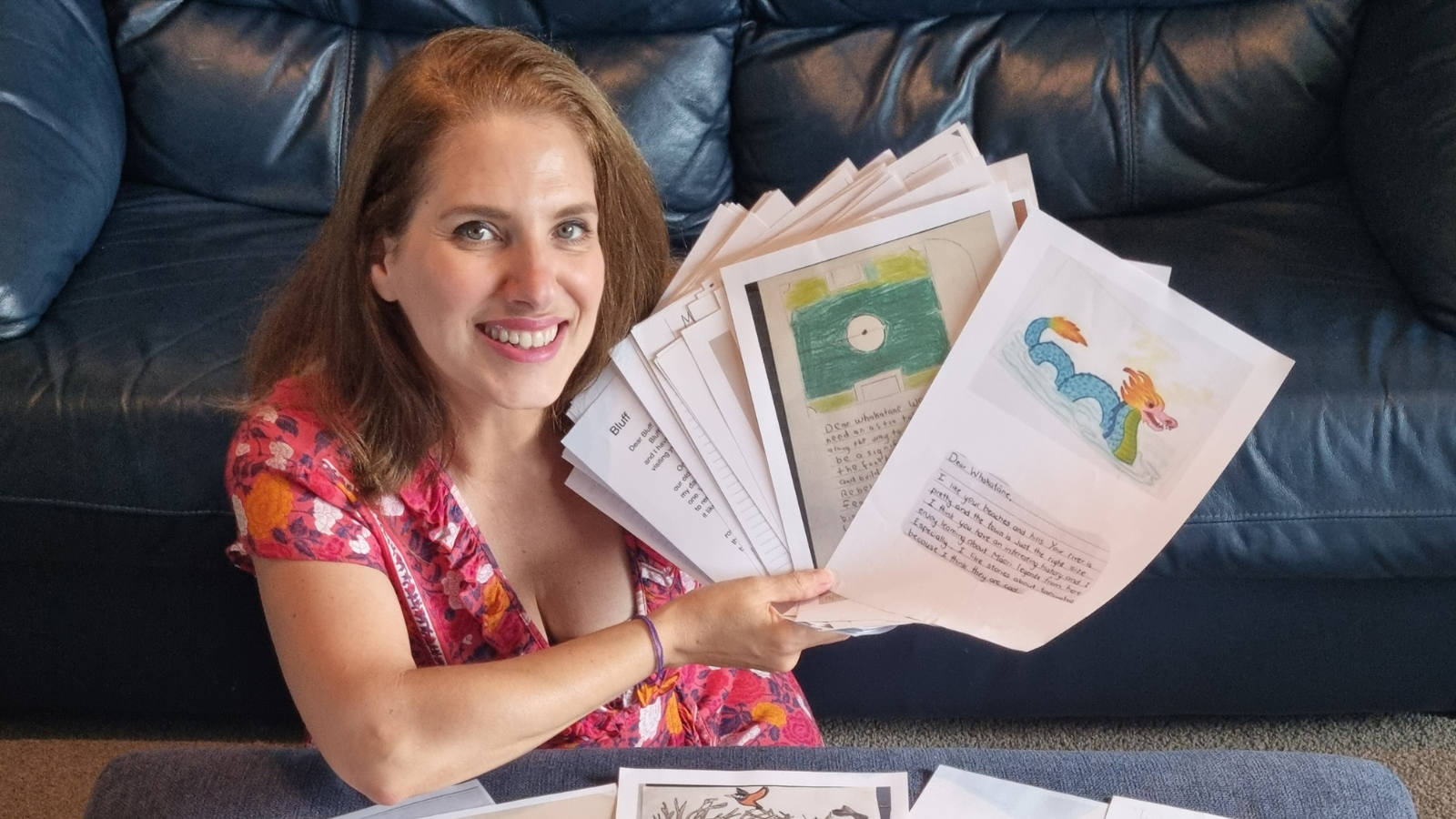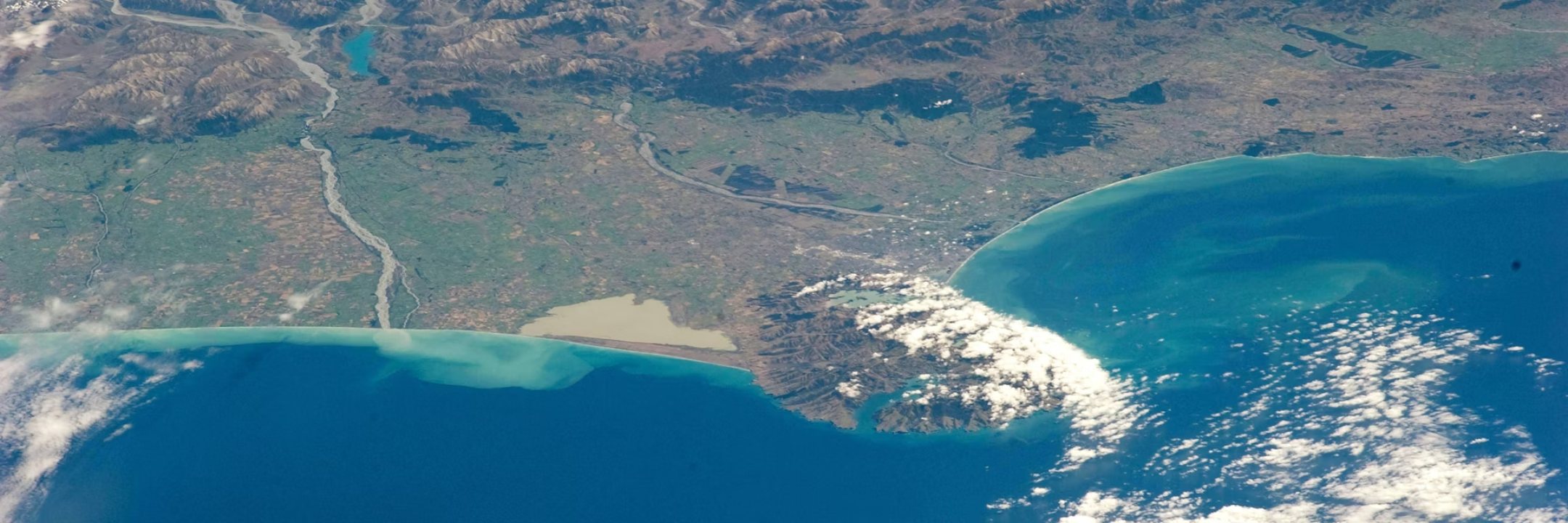University of Waikato welcomes yesterday’s announcement of the government’s investment in Māori research, science and innovation and looks forward to being part of the path forward for indigenous leaders.

Pouhere Kanapu | Executive Director Vanessa Clark and Ngā Pae o te Māramatanga Pou Matarua | Co-Director Professor Tahu Kukutai alongside Aurei, a sculpture by Waikato Alumnus Rangi Kipa at University of Waikato’s Kirikiriroa campus.
Kanapu is a new Māori-led initiative led by Ngā Pae o te Māramatanga’s (NPM) Māori Centre of Research Excellence (CoRE) that aims to ignite Research, Science and Innovation (RSI) talent and leadership across Te Ao Māori. The government yesterday announced a $6.5 million investment in the system.
Located at the University of Waikato with Pouhere Kanapu, Executive Director Vanessa Clark (Waikato; Ngāti Tiipa, Ngāti Tahinga, Ngāti Āmaru) at the helm, Kanapu will look to create spaces to design and implement practical initiatives, resources and tools to ensure Māori have greater visibility and impact in the RSI system.
“I am humbled by the opportunity to embark on developing future pathways of, by, with and for Māori,” Vanessa says. “This is very timely given the system reset with Te Ara Paerangi Future Pathways, which will bring Maori voices into focus.”
“The project brings together our aspirations with the opportunity to innovate in a Māori way.”
Māori researchers, scientists and knowledge-holders are fundamental to a vibrant RSI system but the evidence shows they are largely undervalued and unsupported. Kanapu - which means lightning or instantaneous glow - will strike at the obstacles that block Māori pathways in the RSI system.
“Ngā Pae is excited to be taking this next step to building the foundations for flourishing Māori futures. There are huge untapped RSI opportunities for our communities. Kanapu will help realise them”, ” says Ngā Pae Pou Matarua | Co-Director Professor Tahu Kukutai.
Over six years Kanapu will work with Māori researchers, scientists and knowledge-holders to design bespoke initiatives to meet the programme’s goals to:
- strengthen connections between the RSI system and hapū, iwi, and Māori communities
- support Māori scientists, researchers and knowledge-holders to thrive as Māori within the RSI system
- provide opportunities for Māori scientists, researchers, and knowledge-holders to access the right resources and supports to develop their talent and leadership skills
- leverage and develop customized tools and resources to support RSI system navigation
Research, Science and Innovation Minister Dr Ayesha Verrall has underscored the importance of excellent research for and with Māori, iwi and hapū.
“Growing a research workforce where the skills, perspectives and expertise of Māori are well represented is a key part of ensuring we have a thriving and talented workforce to meet the opportunities and challenges of today and the future,” Dr Ayesha Verrall says.
“Kanapu is a further way the Government is strengthening the benefits that Māori knowledge, culture, values and worldview bring to the research system. This initiative will enhance employment outcomes of Māori in the research workforce, and will benefit the whole research workforce.”









